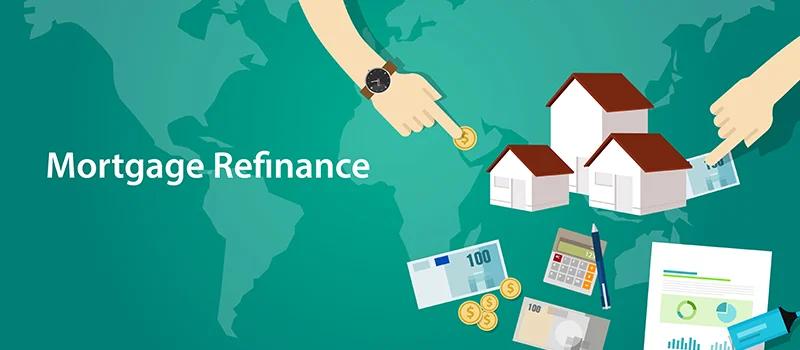Refinancing your mortgage can offer several advantages, but it’s also important to be aware of the potential downsides to make an informed decision.
Refinancing can significantly lower your interest rate, especially if market rates have dropped since you first obtained your mortgage or if your credit score has improved. A lower interest rate reduces your monthly payments and can save you a substantial amount over the life of the loan. Additionally, refinancing can help you switch from an adjustable-rate mortgage (ARM) to a fixed-rate mortgage, providing stability with predictable payments, or vice versa if you prefer to take advantage of lower initial rates offered by ARMs.
Refinancing also provides the opportunity to change the loan term. You might choose to shorten your loan term from 30 years to 15 years, allowing you to pay off your mortgage faster and save on interest, although this typically results in higher monthly payments. Conversely, extending the loan term can lower your monthly payments, which might be beneficial if you’re facing financial challenges.
Another advantage of refinancing is the ability to tap into your home equity through a cash-out refinance. This option allows you to take out a new mortgage for more than you owe on your current one, providing you with extra cash that you can use for home improvements, debt consolidation, or other financial needs. This can be a useful way to access funds at a relatively low interest rate.
However, refinancing isn’t without its drawbacks. One of the primary cons is the cost involved. Refinancing usually comes with closing costs, which can include application fees, appraisal fees, and other expenses that can add up to several thousand dollars. These costs can offset the savings you might gain from a lower interest rate, so it’s essential to calculate the break-even point – the time it takes for the savings from the lower payments to exceed the refinancing costs.
Another potential downside is the extension of your loan term. While lowering your monthly payment by extending the term can provide immediate financial relief, it also means you’ll be paying interest over a longer period, which can increase the total amount paid over the life of the loan. This can be particularly concerning if you’re nearing retirement or have other financial goals that require eliminating debt sooner rather than later.
If you opt for a cash-out refinance, there’s the risk of reducing the equity in your home. Using home equity for non-essential expenses can be risky because it increases your overall debt and decreases the amount of equity you have in your home, which can be a crucial financial asset. Furthermore, if the housing market declines, you could end up owing more than your home is worth, a situation known as being “underwater” on your mortgage.
Refinancing can also impact your credit score. The process involves a hard credit inquiry, which can temporarily lower your credit score. Additionally, opening a new mortgage account can affect the average age of your credit accounts, which is another factor in your credit score calculation.
Lastly, the refinancing process can be time-consuming and require considerable paperwork. Gathering the necessary documentation, dealing with appraisals, and navigating the approval process can be tedious and stressful, particularly if your financial situation is complicated.
In conclusion, refinancing your mortgage can offer significant benefits such as lower interest rates, reduced monthly payments, the ability to tap into home equity, and the option to change your loan term. However, it also involves costs, potential impacts on your credit score, the risk of extending your loan term, and the complexity of the process. Weighing these pros and cons carefully will help you determine if refinancing is the right choice for your financial situation.




